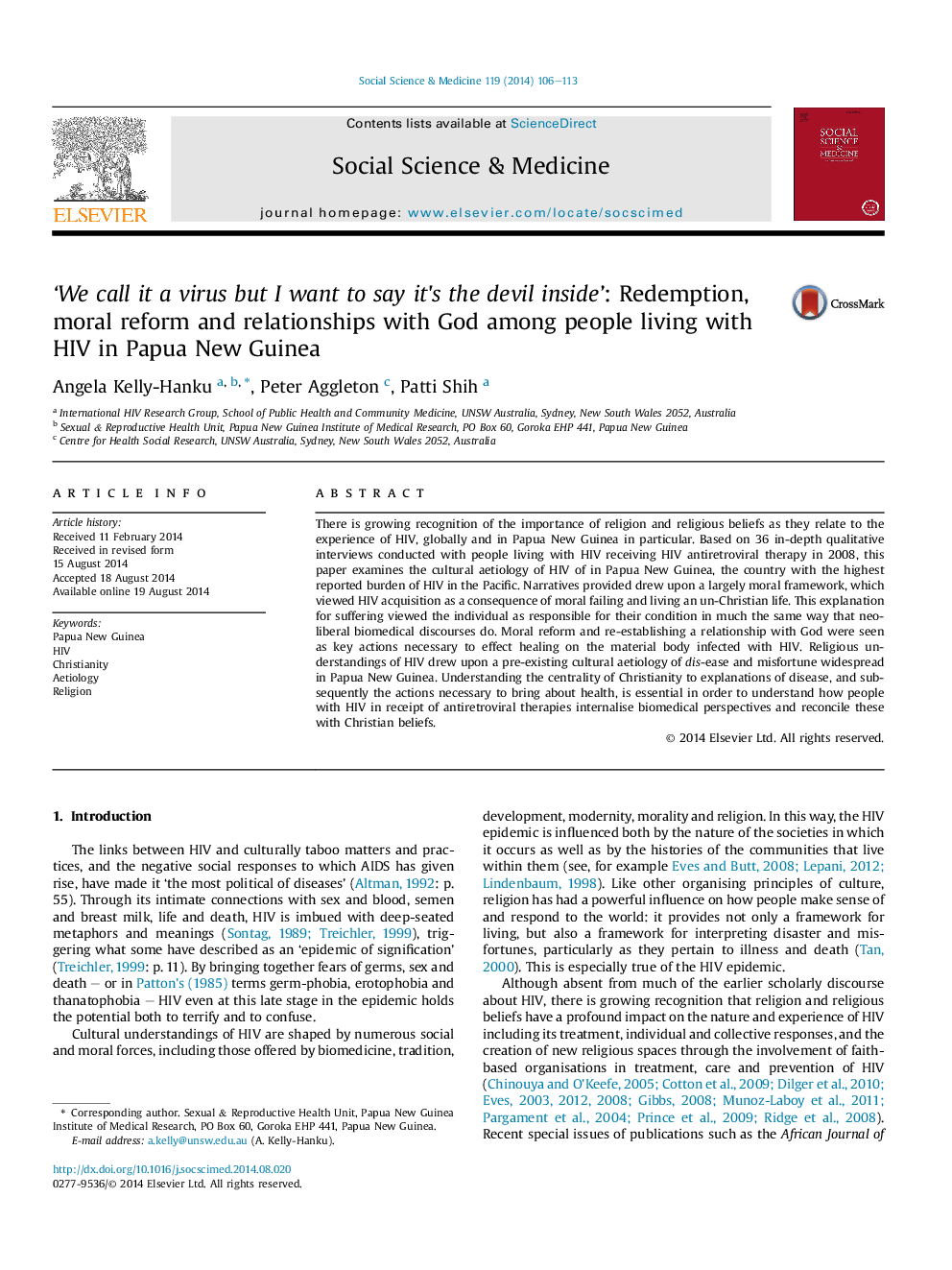| Article ID | Journal | Published Year | Pages | File Type |
|---|---|---|---|---|
| 7334481 | Social Science & Medicine | 2014 | 8 Pages |
Abstract
There is growing recognition of the importance of religion and religious beliefs as they relate to the experience of HIV, globally and in Papua New Guinea in particular. Based on 36 in-depth qualitative interviews conducted with people living with HIV receiving HIV antiretroviral therapy in 2008, this paper examines the cultural aetiology of HIV of in Papua New Guinea, the country with the highest reported burden of HIV in the Pacific. Narratives provided drew upon a largely moral framework, which viewed HIV acquisition as a consequence of moral failing and living an un-Christian life. This explanation for suffering viewed the individual as responsible for their condition in much the same way that neo-liberal biomedical discourses do. Moral reform and re-establishing a relationship with God were seen as key actions necessary to effect healing on the material body infected with HIV. Religious understandings of HIV drew upon a pre-existing cultural aetiology of dis-ease and misfortune widespread in Papua New Guinea. Understanding the centrality of Christianity to explanations of disease, and subsequently the actions necessary to bring about health, is essential in order to understand how people with HIV in receipt of antiretroviral therapies internalise biomedical perspectives and reconcile these with Christian beliefs.
Related Topics
Health Sciences
Medicine and Dentistry
Public Health and Health Policy
Authors
Angela Kelly-Hanku, Peter Aggleton, Patti Shih,
